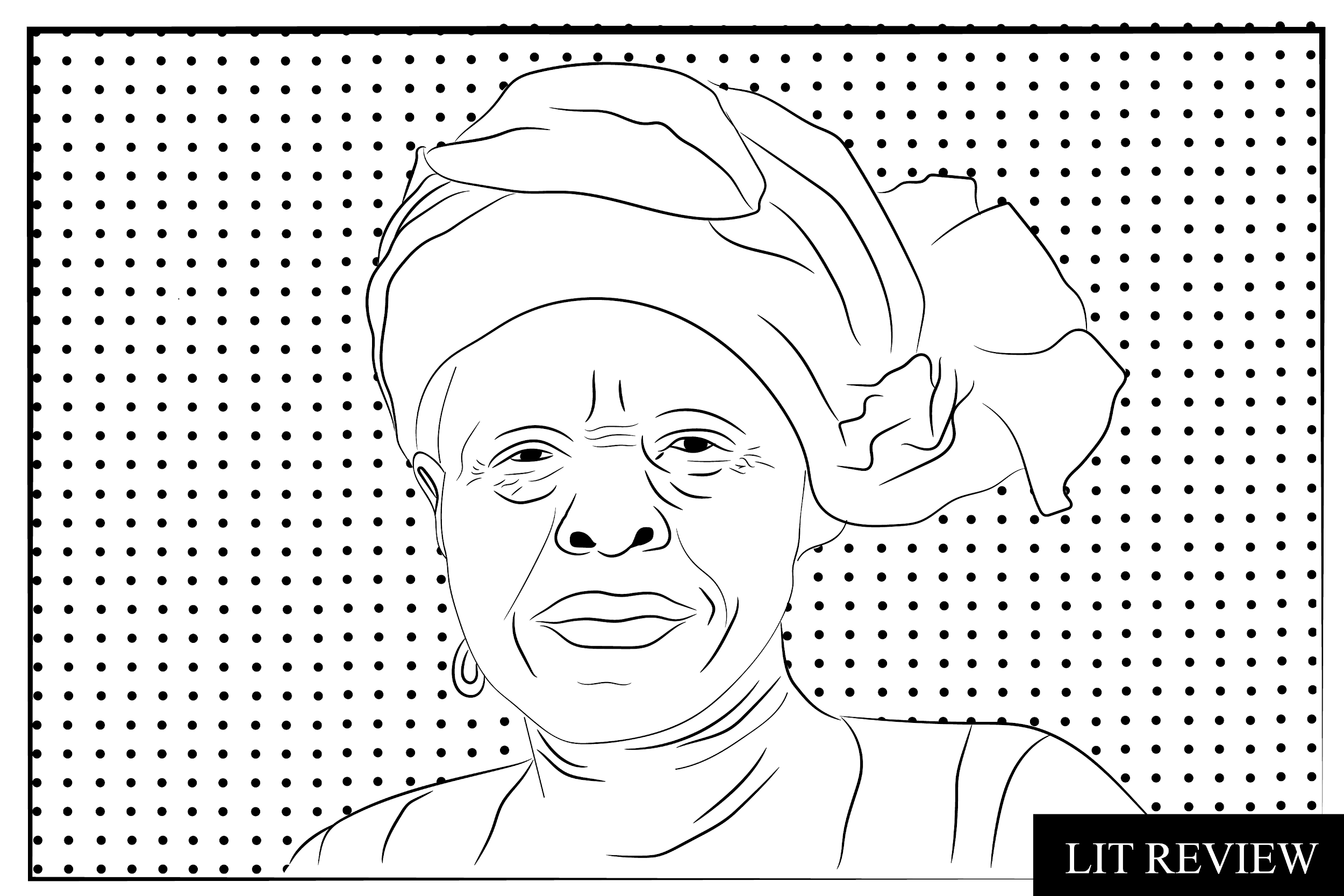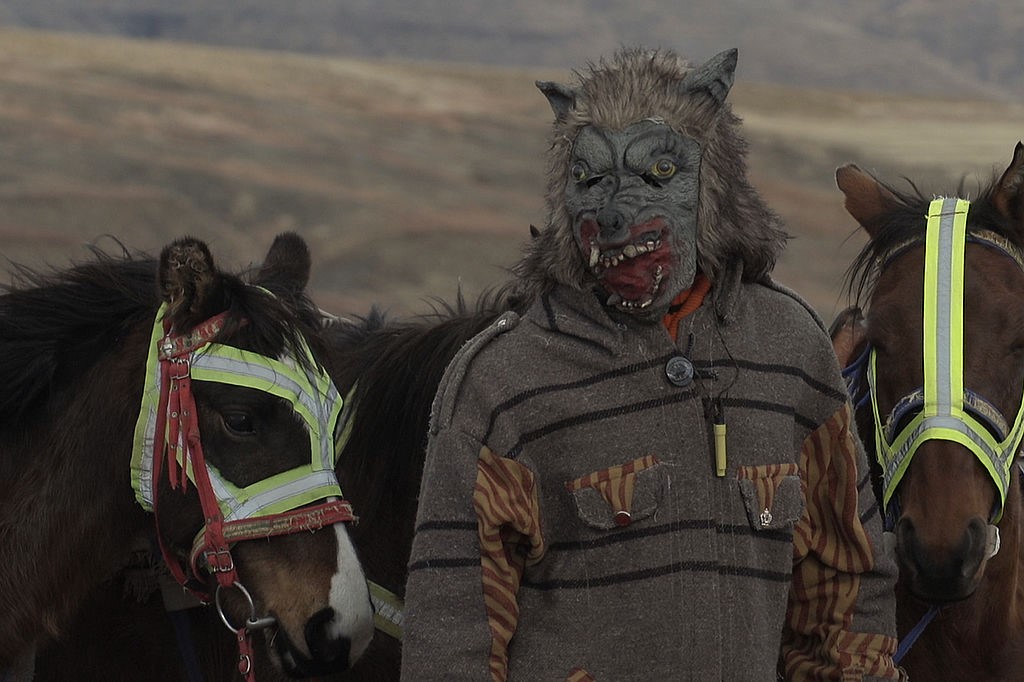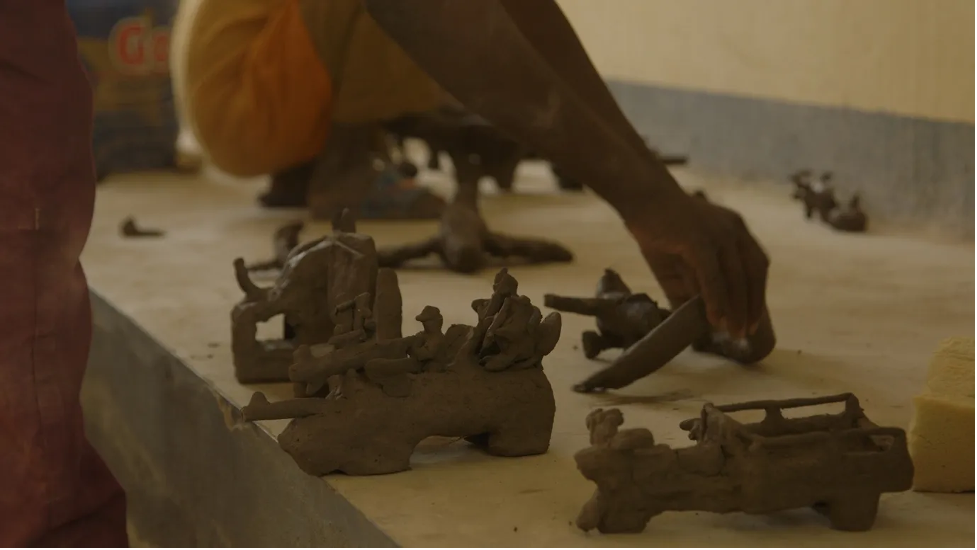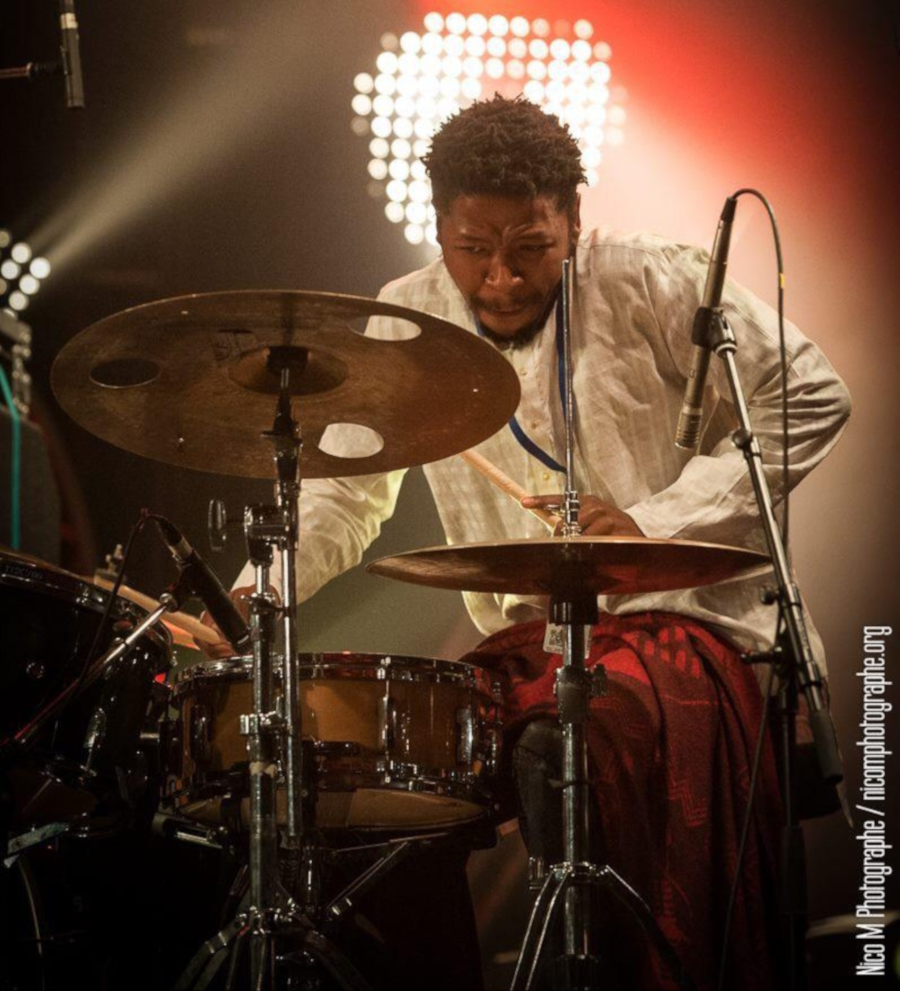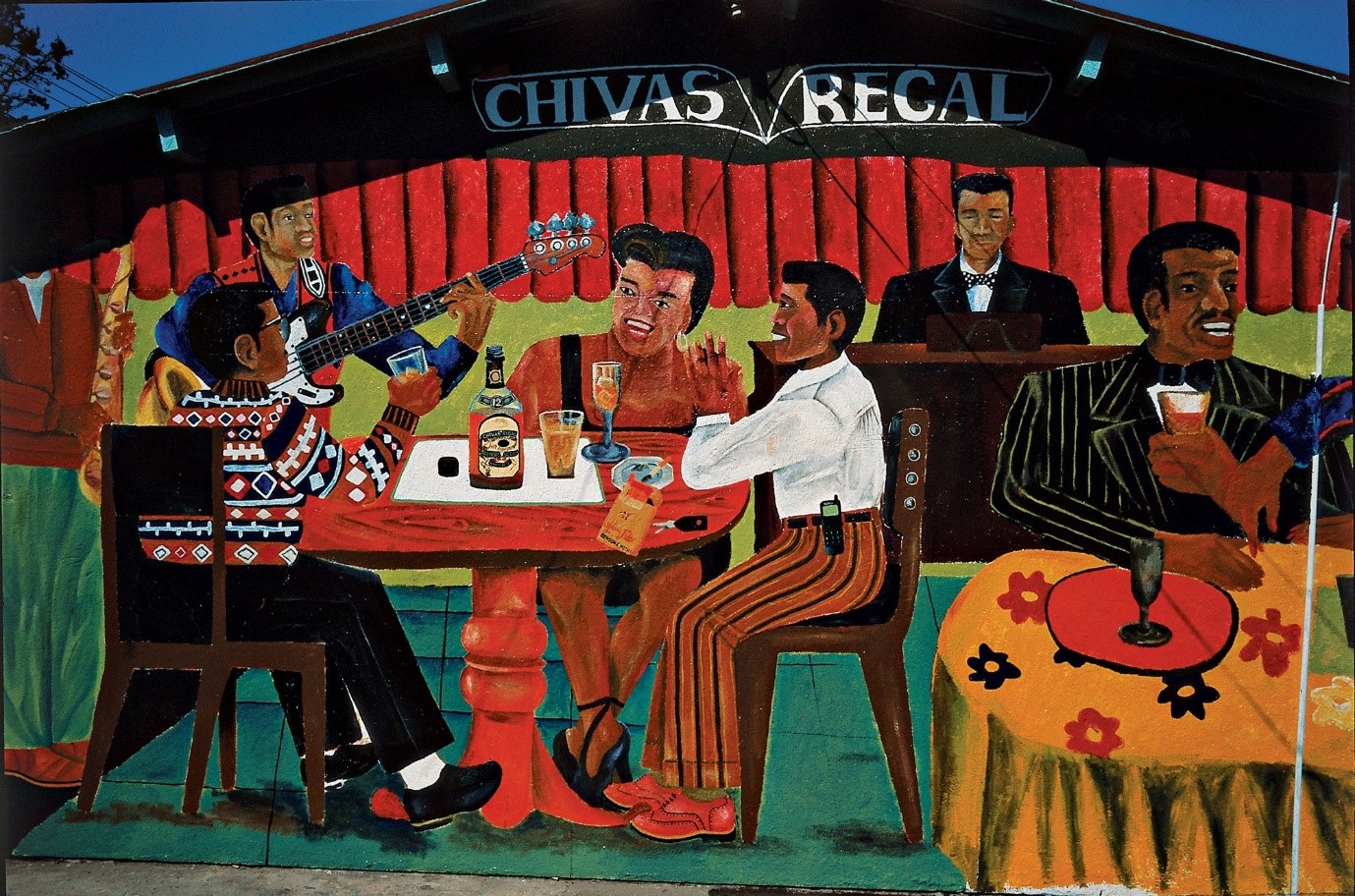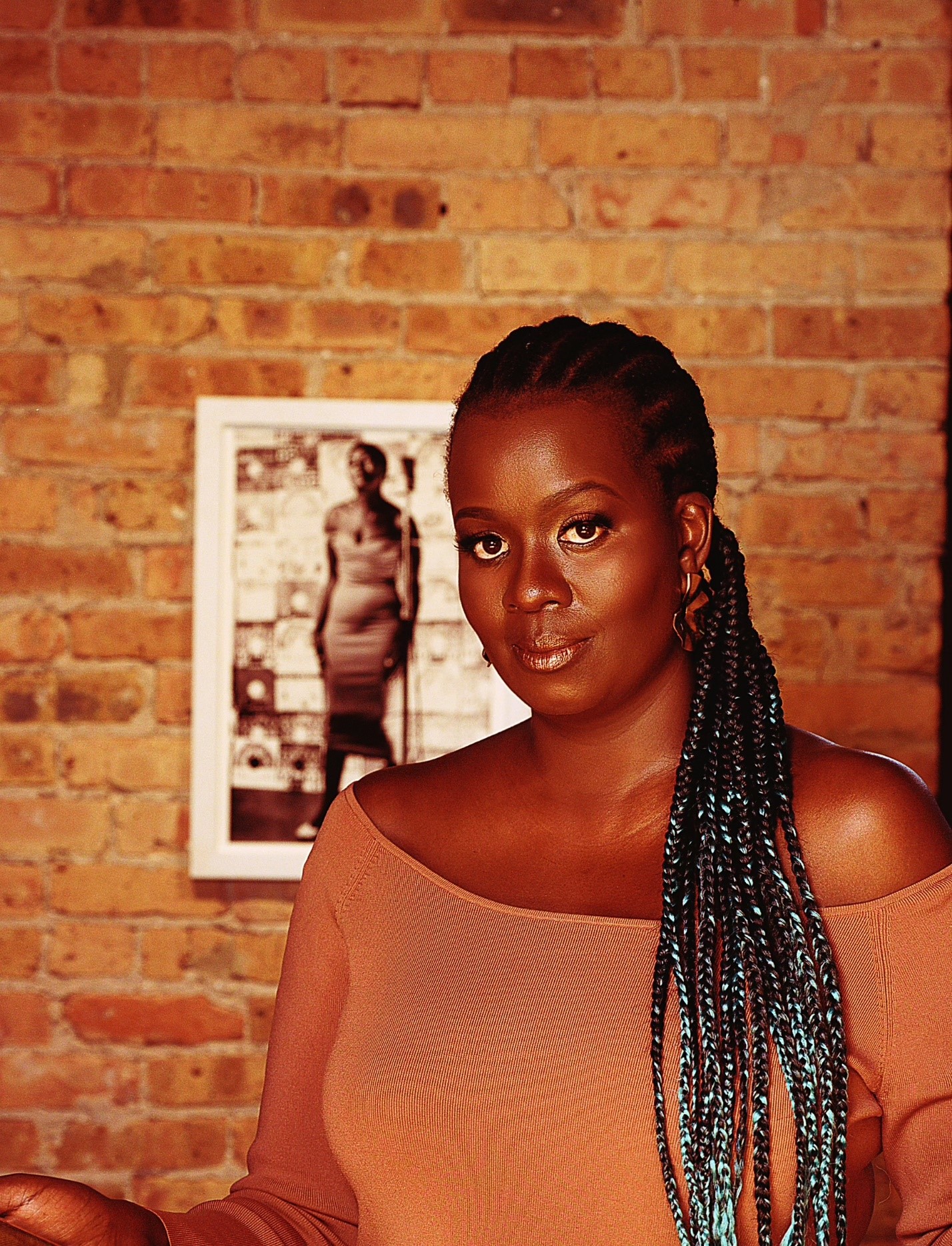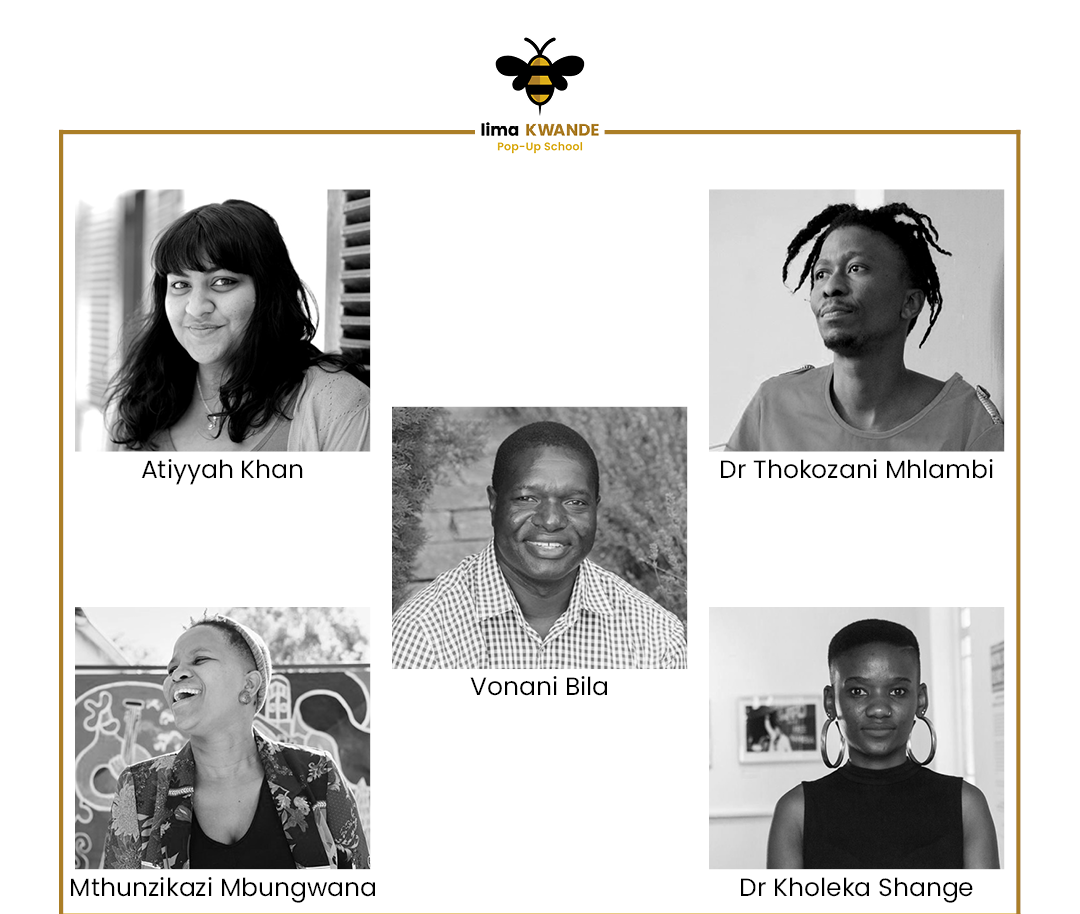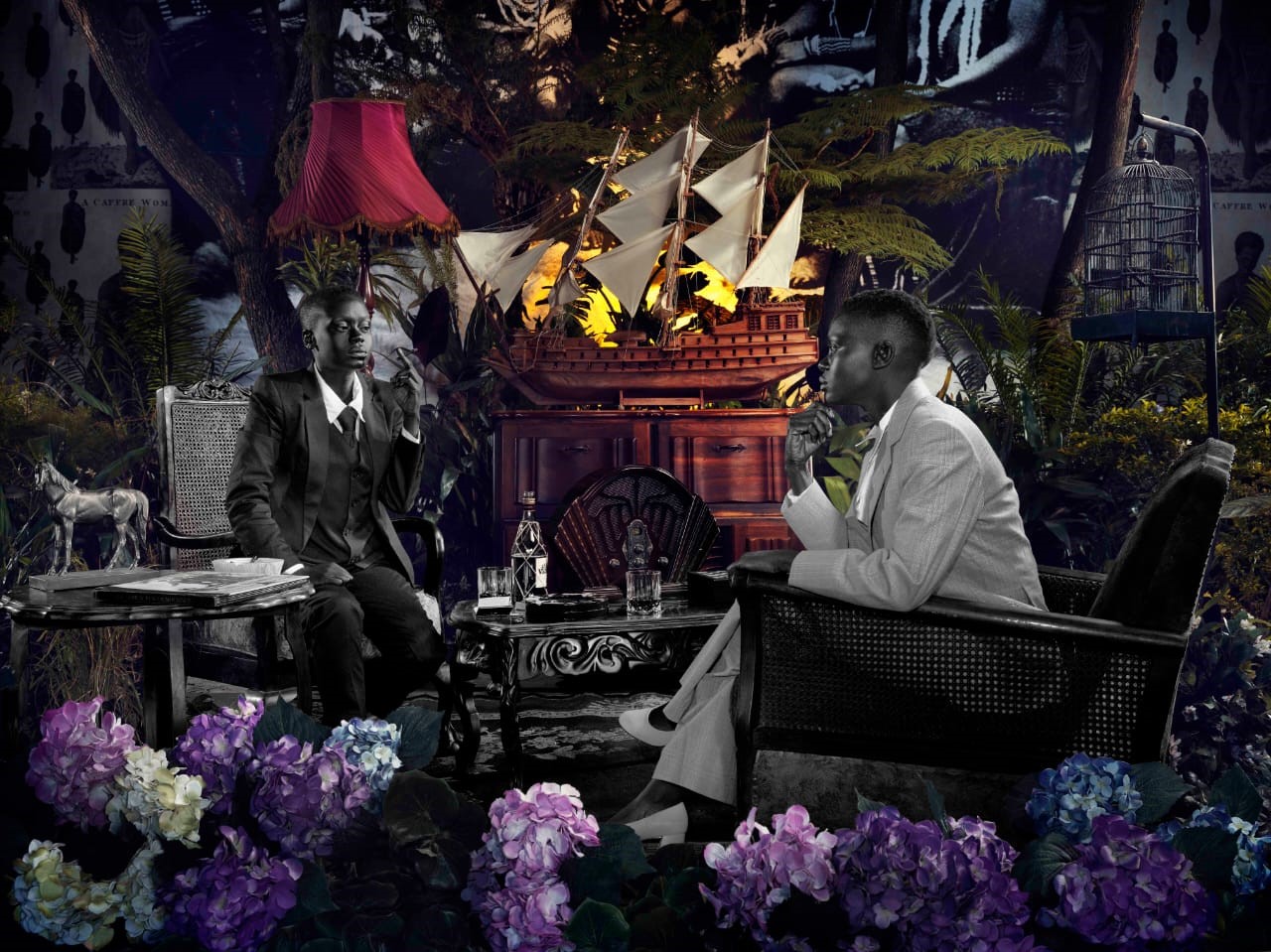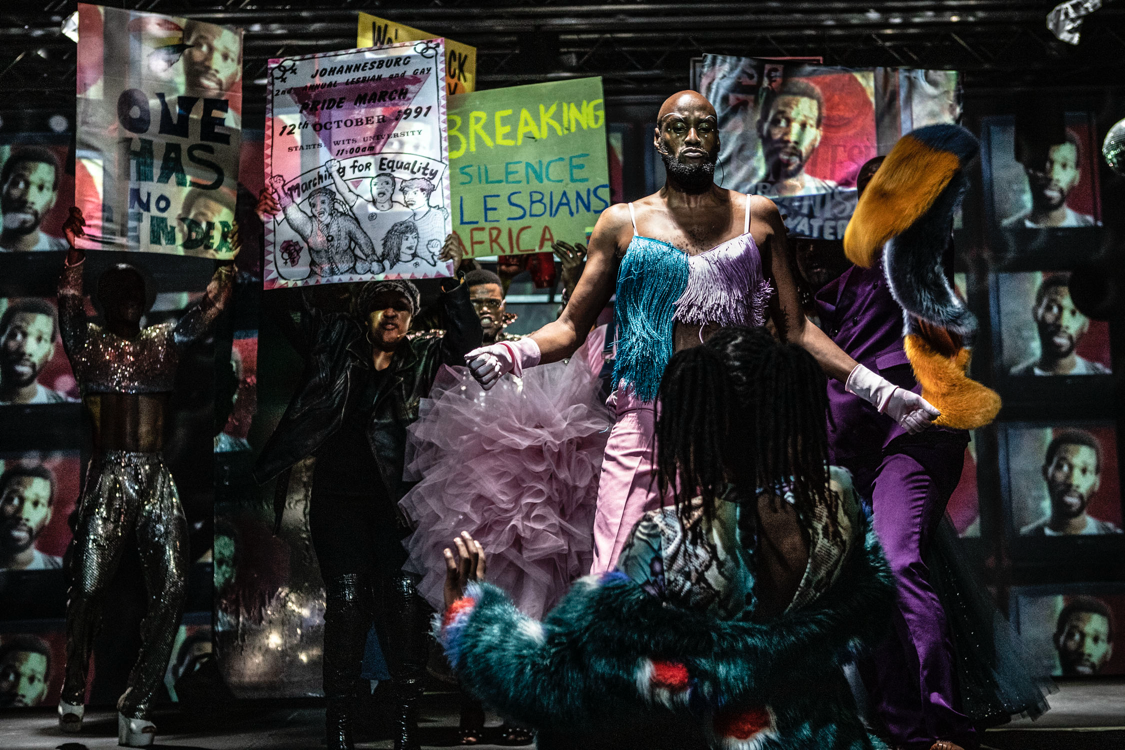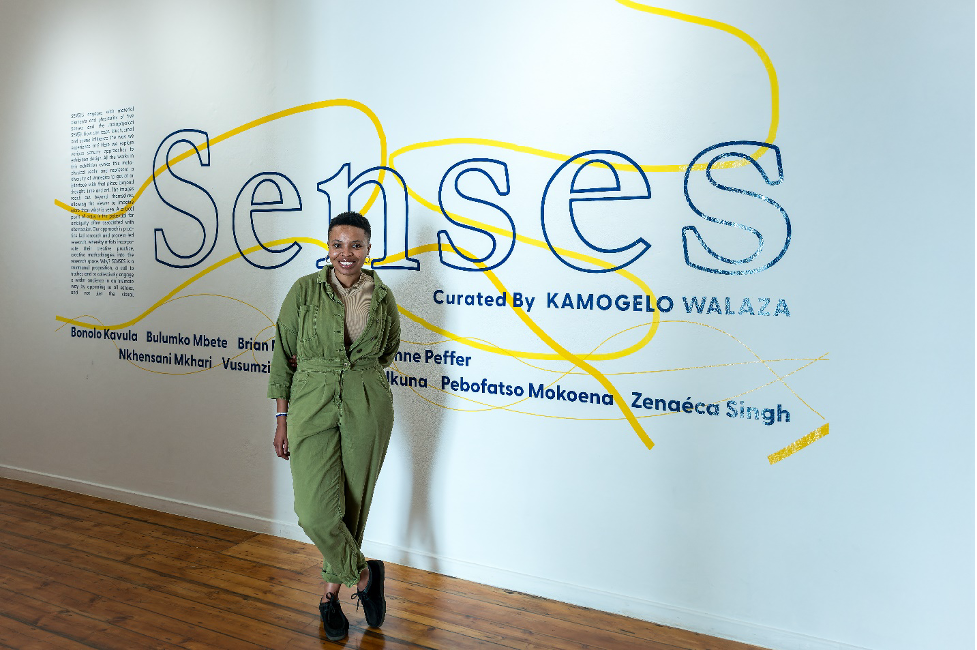Socrates and Òrúnmìlà: The Two Patrons of Classical Philosophy is a 2015 book by Nigerian philosopher, Sophie Olúwolé, exploring three themes: classical Yorùbá philosophy, metaphilosophy (in other words, philosophy about the discipline of philosophy) and the relationship between idea and matter (our mind and the material world), which is branch of philosophy called metaphysics.
Olúwolé makes various claims to support her view that classical Yorùbá beliefs are philosophy. Olúwolé is also attempting to change how we define philosophy, in general. She does not do this simply because it is convenient for the inclusion of Yorùbá beliefs. Instead, she makes a compelling case for her view of philosophy (a school of thought she calls complementary dualism) and then shows that Yorùbá beliefs are included in this compelling case.
As an example of comparative philosophy, much of the book analyses similarities and distinctions between Socrates and Òrúnmìlà, influential figures in establishing Greek and Yorùbá philosophical traditions respectively. The book is notable for offering original text from the Ifá literary corpus (Odù Ifá) with some of Olúwolé’s preferred translations, used to show the systematic thinking in traditional Yorùbá thoughts — and dispelling the notion that such thought is merely mystic or religious.
“A comparative study of Socrates and Òrúnmìlà is one of several ways through which these and several wrong characterizations of philosophy in general, and of African Philosophy in particular, can be demonstrated as either false or the result of some fundamental and gross misunderstandings.” (pg 24)
Olúwolé claims many of the arguments which suggest Odù Ifá is not a legitimate form of philosophy are myopic, misunderstand the systematic thinking present within Odù Ifá, or attempt to use simple general ideas to understand “the basic features of ideas, the literary form and style, the critical process of explanation, analysis and arguments that justify the identification of various literary expressions as philosophy”. (pg 27)
Olúwolé’s Metaphilosophy
Starting on this note, Olúwolé believes that a narrow view of philosophy is used to exclude classical African philosophy, but more crucially an entire systematic way of thinking about reality — complementary dualism. She defines two major systematic conceptual frameworks for understanding reality: monism and dualism.
She defines monism as the view that “although matter and idea appear as two distinctive features of reality, only one of them is fundamental, the other, at worst, does not exist.” (pg 124) Dualism, on the other hand, is “the theory that reality is made up of two features namely mind and matter.” (pg 127) She shows that some Western thinkers, such as Descartes, have developed dualism to suggest that mind and matter both exist, but in opposition to each other.
“the view that matter and idea, are oppositional in nature, and that there are no recognizable intermediate possibilities between them, is one of the most central canons of rationality in the Western tradition of philosophy.” (pg 136)
For Olúwolé, there is another way to think about dualism wherein mind and matter complement each other. This kind of thinking is different to a monistic framework (which rejects either mind or matter) and any dualistic framework which is oppositional (which accepts both mind and matter, but claims they cannot be reconciled). This is the reason she gives for popular rejections of classical African philosophy since much of classical African philosophy is not oppositional.
“If scholars have remained intellectually unbiased… Western educated scholars would have removed the blinkers which prevent them from appreciating the fundamental error in insisting that human kind is given to thinking in the oppositional form in which there is no other rational option between two apparently opposing existence.” (pg 181)
There is also the problem of many scholars in the West, and some contemporaries in Africa, believing that classical African philosophy is not systematic. These scholars believe that “Africans traditionally express their ideas, beliefs and views in emotive, non-rational and unscientific terms” (pg 84), that these “ideas, beliefs and views were all expressed in the oral form that gives no room for analysis, criticism, arguments and counter-arguments”, that they are “expressions of myths, proverbs, tales and metaphors, which are bald and non-critical and “views are commonly shared by all members of an entire society” (pg 85).
“The ideas and views expressed in these forms of thought are subjected to neither the laws of logic nor the verdict of human experience for rational and empirical validation. They are, at best, folklore, which is broad, vulgar and non-critical philosophy” (pg 85)
These scholars further claim that African philosophy is “replete with a near-innumerable number of spirits, ghosts, gods and goddesses, including those of the dead and the unborn” claiming that such philosophy is more akin to religion. (pg 89)
Olúwolé criticises the methods used to reach these conclusions, such as “interviewing some wise and erudite contemporary Yorùbá thinkers” (pg 95) or relying on memoirs “written by Western travellers, seekers of wealth and exoticism, indoctrinated missioners and socially biased political agents.” (pg 85).
Olúwolé recommends consulting traditional African views to see expressions of philosophy. For instance, she suggests consulting the Babaláwo, as they are custodians of Odù Ifá:
“An essential part of the training of the Babaláwo, in the latter sense, is the commitment to memory a substantial number of the over four hundred thousand verses in the over two thousand chapters of Ifá oral corpus. All prominent scholars of Ifá now testify that the corpus is a computerized storage of Yorùbá thought. They are expressions of ancient Yorùbá knowledge and wisdom, in all areas of their rational endeavours. Many Ifá texts are treatises on science, religion, philosophy, mathematics, law, politics, education, poetry, sociology, etc. This means that Ifá oral corpus is the people's philosophy, in its classical conception. In plain language, the Babaláwo are traditional Yorùbá philosophers” (pg 23)
In this book, Olúwolé gives translations of Odù Ifá to show systematic philosophical thinking, which she believes is a better method to understand classical Yorùbá beliefs. Olúwolé also shows the use of binary notations to show the mathematical nature of how Odù Ifá is computerised, (pg 92), shows the structure of Ifá theorising (pg 98, 106), claims some misunderstanding of Odù Ifá are drawn from mistranslations (pg 98) and analyses a sample of Ifá verse to show systematic thinking (pg 99, 104—109). There is also evidence that Odù Ifá has accepted criticism and development (pg 151)
Olúwolé also advises scholars on how to approach understanding (and comparing philosophy) “1,. ascertain similarities and make them explicit; 2. identify differences, ...to describe and explain them; 3. dispel prejudices; 4. avoid mystification and exoticism; 5. assume the existence of Universal logical laws, 6. compare equalities to avert categorical mistakes, 7. avoid generalizations 8. do not mistake parts of a tradition for the whole” (pg 154)
Underpinning a critique of African philosophy is how people view or understand its abstractions. For Olúwolé, the classical understanding of philosophy was “wisdom” and such has been displayed in classical African philosophy, to a comparable degree “at the time of Socrates and Plato” (pg 101).
Seemingly, a rejection of classical African philosophy is more accurately a rejection of complementary dualism. Before getting into this concept of complementary dualism, Olúwolé offers a sensible case for what philosophy should be.
Olúwolé defines philosophy as “the realm of study in which attempts are made to characterize Matter and Idea, each of the two apparently opposing features of reality, give explanations as to whether or not they are related in existence and function; identify the nature of such relationship and how all these determine Truth.” (pg 8). This view places how we understand reality as most crucial to philosophy, specifically how we understand the relation between matter and idea. This is a branch of philosophy, metaphysics, which examines the fundamental nature of reality, especially the relationship between the mind and the material. This branch is the focus of Olúwolé’s Socrates and Òrúnmìlà.
Olúwolé defines comparative philosophy as “comparisons of ideas, concepts, principles and theories in philosophy and comparison as the study of the works of two or more thinkers or systems” offering various examples of comparative philosophy, such as the comparison of two different philosophy tradition within the same society or two thinkers from distinctive cultures. (pg 10)
Ifá is often considered to be a form of religion. Olúwolé disagrees, arguing that Odù Ifá is “a computerized compendium of the [Yorùbá] people’s views on different aspects of nature and human existence” such that Ifá translates to “Yorùbá Classical Philosophy”. (pg 14)
Olúwolé makes two very important defenses of classical Yorùbá philosophy:
First, the arguments that doubt Òrúnmìlà’s philosophy on the basis that it was passed on orally is countered by the fact that Socrates also did not write down any philosophy and his ideas were communicated by Plato, Xenophone and Aristophanes, all with particular reasons that might make us doubt elements of their portrayal of Socrates. (pg 36, 53) For Olúwolé, it is only important that philosophy, whether oral or written, is systematic in its approach.
Second, on this very point of systematic approach, Olúwolé claims that divination, as a method used in the Yorùbá Classical Age, was not merely religious. It did contain “prayer, sacrifice, fasting, worship and rituals as essential parts of their religious obligations” but “like in most ancient traditions of the world, there were no hard lines drawn between Religion, Philosophy, Science and Social Studies.” (pg 48)
So, what is Òrúnmìlà’s method? Here, Olúwolé claims it is where “predictions are arrived at through the use of mathematical laws of probability.” (page 48) Odù Ifá divination is rooted in a process of determining “God’s Will” (or infallible truth) precisely because Òrúnmìlà believes that people can not possess absolute truth. But the way in which people attempt to access that truth, through divination, is systematic.
Òrúnmìlà’s Philosophy
In some areas, both philosophers have identical beliefs. For instance, Socrates claims: “For my position has always been, that I myself am ignorant of how these things are, but that I have never met anyone who could say otherwise, any more than you can and not appear ridiculous." (pg 56)
Òrúnmìlà similarly claims:
“I want to find out if any of my colleagues who believe they know the beginning and end of matters can make good this claim… I myself do not know these things.”
Olúwolé shows further comparisons between these philosophers along themes of reality, truth, knowledge, ideas, education, religion, destiny, death, virtue, evil, kindness, forgiveness, vengeance, money, leadership, the state, political rights and women’s rights. (pg 54—71). They have similar views on an ideal life (education, social development, avoiding wrongdoing) (pg 76), embodying virtue (what Òrúnmìlà called Iwà) in how we live (pg 74) and the need for critical analysis. (pg 74)
There are several areas where they agree, but there are also clear divergences. For instance, Socrates saw good and evil as separate opposites where Òrúnmìlà views them as “an inseparable pair”. (pg 78) Socrates viewed women as unequal to men but Òrúnmìlà argued that all are born equal, claiming also that “experienced men, experienced women, experienced youth, and experienced foreigners, have equal political rights to run the affairs of state.” (pg 79)
Another salient difference is on what philosophy is. For Socrates, a philosopher achieves a “glimpse of ideas in the ideal world created by God rather than knowledge of a world accessed through human experience since that knowledge is only of an imitation.” (pg 77) Òrúnmìlà agrees that there is an “unchanging and everlasting” truth emanating from God, but claims that humans cannot even glimpse it. Instead, we pursue a different truth through “through sense experience, discussion and critical analysis”. (pg 78) For Òrúnmìlà, a philosopher is someone who achieves the highest truth possible to humans, but still not the absolute truth, only possible to God. There is an end to human truth.
For Olúwolé, what truly separates Socrates and Òrúnmìlà is that “Socrates believed that matter and idea have independent existence” whereas “Òrúnmìlà held the view that matter and idea constitute an inseparable pair.:., -both in nature and in functioning”.
Through translating Odù Ifá, Olúwolé shows us that Yorùbá classical philosophy is comparable to Socrates’ philosophy. She also explains the differences in the Yorùbá method (divination) and defends against myopic criticisms.
Crucially, Olúwolé claims that Yorùbá philosophy supports the use of critical thinking, pointing to the Yorùbá saying, “Explanation is the gem of proposition,without it, there cannot be any understanding.” Proverbs are crucial to the way Yorùbá communicate their philosophy, but Olúwolé claims these proverbs are “a conceptual tool of analysis; when discourse is unclear, the proverb is used to make it explicit.” (pg 74)
Having defended classical African philosophy and divulged some of its belief, Olúwolé turns her attention to complementary dualism, explaining the concept.
ALSO READ: Mbembe’s Postcolony
Olúwolé’s Metaphysics
Olúwolé agrees with Maurier’s explanations of a conceptual framework being a theme which “gives thought its internal consistency, its wholeness, its originality, in such a way that to understand a thought is to grasp hold of it by that unspoken principle which unifies and illuminates it.” (pg 118) In other words, it is the underlying scheme that informs how philosophical statements are developed.
A conceptual framework can also be expressed as one’s “first basic intuition” or “terms of explanation” which are conceptions of reality, its distinctive features and knowledge we can have of reality. (pg 122) For both Maurier and Olúwolé, such a framework is “already present and operative in the first basic intuition”. (pg 119)
Because of this, Olúwolé believes that:
“The main issue in the debate about the existence of African philosophy is to identify and define the conceptual framework(s) within which African ideas, beliefs, principles and theories all hang together as a rational and scientific system of thought”
Frameworks develop from a perception of reality, Olúwolé supports. This can be expressed as one’s “inner eyes” (Ojú Inú in Yorùbá). For Africans, there are “major historical periods of pre-colonial, slavery, colonial and post-colonial eras” which have affected African conceptual frameworks. (pg 121) In this text, Olúwolé focuses on classical Yorùbá philosophy. This African conceptual framework, Olúwolé believes, is complementary dualism.
“A search for African new realities made up of the totality of their experiences during the three major socio-historical epochs in Africa, but one defined by some basic intuitions about reality and the nature of knowledge, made by some ancient African thinkers.” (pg 123)
For Olúwolé, a conceptual framework believes reality consists of either matter or idea (monist) or both (dualist). She separates monism into two areas of thought, materialism (which prefers matter) and idealism (which prefers idea). (pg 124—6)
Dualism is also split between oppositional dualism (which claims matter and idea cannot be reconciled) and complementary dualism, which claims they are interdependent. (pg 127—9) For Òrúnmìlà, matter and idea are “inseparable and complementary in nature and function.” (pg 139) This is based on observation of the world, seeing in it, the pairing of parts.
An example of complementary dualism is found in the Yorùbá belief, “When reason is stretched to the limit, folly becomes inevitable.” (pg 140). Olúwolé also references Ramose’s view on Ubuntu to show complementary dualism in classical African philosophy:
“Ubuntu is actually two words in one… Ubu- as the generalized understanding of be-ing may be said to be distinctly ontological, whereas - ntu as the nodal point at which being assumes concrete form or a mode of be-ing” (pg 142)
Ramose argues that Ubu- and -ntu are two interrelated ways of being. Ubu can be seen as “the generalized understanding of be-ing” and Ntu as “the sense in which reality becomes perceptible to human senses” but they are “One continuous whole-ness rather than an independent fragment of reality.” (pg 142) This shows a dual nature of being which is both ontological (the essence of being) and concrete (the perception of being) interacting to create a wholeness of being.
Olúwolé shows how classical Yorùbá philosophy is systematic, how complementary dualism functions as a conceptual framework within metaphysics, and then how Yorùbá philosophy is a case of complementary dualism.
In doing so, Olúwolé is not necessarily settling debate on whether African metaphysics is equal to Western metaphysics. She believes such a topic can be discussed, but not resolved. But she also believes efforts to compare the superiority of such systems are likely in bad faith. After all, what we can do is show that they are both philosophies and that they are different philosophies.
“Philosophies from two different cultures of the world must share some universal features to pass muster as 'critical' philosophy. They must, however, differ in some substantial way to be classified as two cultural traditions of philosophy. In other words, features that authenticate them as members of the same discipline cannot be those that establish their sound differences.” (pg 150)
Olúwolé does say that there are some issues with classical Western philosophy, claiming its conceptual framework is one in which “there is no inherent base in terms of which Fundamental Human Rights can be demonstrated as rational, scientific and, consequently intellectually inalienable” (pg 152) While Plato is recorded as defending women’s rights, there are problems of sexism in the writings of Aristotle, who believed “full excellence can be realized only by matured male of the upper class, and not by women, or children, or barbarians, [non-Greeks], or 'salaried mechanics”. (pg 163)
“Most political philosophers of the Enlightenment Age, rather than take sides with Plato, pitched their tent with Aristotle by defending and propagating male chauvinism as the ideal principle and practice of democracy. This ideology dominated Western socio-political thought for the next two thousand years, right down to the 21st century” (pg 163)
Sexism is present in Greek and Biblical creation myths (pg 166). Plato is also recorded as saying:
“I thank God that I was born Greek, and not barbarian; free man and not slave, man and not woman, and above all, that I was born in the age of Socrates.” (pg 163)
For Olúwolé, an oppositional conceptual framework struggles to establish human rights and fair treatment of others, since each person is considered independent and existing in opposition to each other. (pg 160) Complementary dualism suggests that “to be a human being is to affirm one's humanity by recognizing the humanity of others, and on that basis, establish humane relationship with them” (pg 161)
So, for Olúwolé, there is a relationship between metaphysics (our understanding of reality) and ethics (concepts of right and wrong behaviour).
But more than just ethics, Olúwolé believes that an oppositional framework “ignores the facts of human experience” or “how things are in real life.” (pg 160—1) For Olúwolé, since we experience life in a complementary way, life is complementary.
This also leads to humanistic setbacks, such as “malignant sexism” and “male chauvinism”. (pg 171) Olúwolé believes that a belief of complementary dualism leads to humanism. (pg 172)
In that breath, she criticises rational conceptions of humanism, such as Kant defining humanism as a “Universal Moral Obligation” or Herrick suggesting morals derive from altruism, social agreements, empathy, moral instinct and moral values”. For Olúwolé, these ideas are not drawn from “principles induced from human experience”. (pg181—2)
Instead, by positioning Humanism within conceptual dualism, Olúwolé suggests that “Humanism is a theory not based on sympathy and/or emotion, as Herrick suggests, but one demonstrable as a scientifically and rationally justified intellectual thesis.” (pg 183) So, Olúwolé positions Humanism as something that stems from reality.
More precisely, Ulowole argues that reality is complementary. This creates a complementary way of being (Ubuntu) and therefore moral behaviour (humanism). A complementary way of being can be considered a contribution to the branch of philosophy concerned with being (ontology) and this view of humanism can be considered a contribution to the branch of philosophy concerned with moral treatment (ethics). But, for Olúwolé, they are both connected to reality (metaphysics). This can also stretch into understandings of political & legal philosophy.
“The raging argument, that Fundamental Human Rights are neither scientifically nor rationally inalienable, is intellectually valid only within Western Binary Oppositional Conceptual Frameworks but invalid within the Binary Complementarity Framework” (pg 185)
Developing African Philosophy
Drawing from this, Olúwolé argues the world should develop from this framework of reality. “Development based on the African world view of Binary Complementarity is what most scholars now see as the solution to the various forms of intellectual and social upheavals across the world.” (pg 175)
“International social harmony is realizable through serious comparative studies of human traditions of thought. This is best carried out as dialogues rather than as speculative and ideological debates about whether or not some traditions of thought are rational and scientific options within the discipline of philosophy” (pg 177)
For Africans, Olúwolé criticises a rejection of systematic thinking in favour of non-critical ways of being. She suggests first that “the claim that Africans are religious people who are oblivious of the crucial role science and technology plays in the development of the human society, is not factually true of all ancient African societies.” (pg 177). Second, she states that beliefs that claim “only white people possess the natural ability to think in scientific, rational and critical terms” are racist. So, attempting to form an African way of life that does not rely on systematic thinking is reliant on racist pseudo-theories. (pg 90) Here, she criticises Negritude for trying to create African identity by rejecting systematic thinking. “Now that Racism has been demonstrated as a pseudo-science, Negritude, a theory based on its auspices, must suffer the same fate.” (pg 90)
Olúwolé similarly criticises African scholars for accepting the “proposal of the existence of a biological African Personality that defines a unique African Conscience as a cultural mode of thought.” (pg 180) The criticism here is not necessarily with the ideas themselves, but the non-systematic nature of these ideas and the underlying racist frameworks they are drawn from, which suggest that Africans are non-systematic, non-critical and non-thinking.
In displaying a conceptual framework for classical African philosophy, Olúwolé negates such a view of Africans and creates the opportunity for African Philosophy to develop. That is a task Olúwolé leaves to us and our inner selves.
Now, in all my problems and travails, I will always consult with my inner self. "My inner self, you are the only reliable consultant".
Óní bee gégé ni áwon awoo un wí

